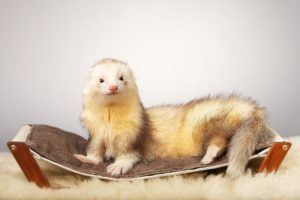Hedgehog Food
Hedgehogs are small mammals that are kept as pets in many areas. Covered in quills, they got their name from their habit of rooting under hedges for food while making snorting, snuffling sounds. They eat a variety of different foods, and nutrition is extremely important for keeping your hedgehog healthy.
Types of Hedgehogs
There are several species of hedgehogs, and they are found throughout the world, in areas such as Africa and Europe. The most popular type of hedgehog kept as a pet is the African Pygmy Hedgehog. Other species include the Long-eared Hedgehog and the West African Hedgehog.
These animals can range in size from a few inches long to being 12 inches long. They can roll up into a ball, but they cannot roll that way, no matter what Sonic the Hedgehog does. In the wild, these animals live in burrows.
What Are Types of Hedgehog Food?
The mainstay of your hedgehog’s diet is generally going to be hedgehog or cat kibble. Hedgehogs need food that is high in protein, so you should aim for finding a food that is less than 20 percent fat and at least 30 percent protein. Ideally, you will get a hedgehog-specific diet, but they can be hard to find and are generally only in specialty pet food retailers or online. You can also supplement your hedgehog with canned dog or cat food, but this should not be as the main portion of their diet.
Other sources of protein that you may consider feeding as hedgehog food include insects such as crickets or mealworms, pinky mice, and hard-boiled eggs. Feeding live insects can be a great source of mental stimulation for your hedgehog.
Fresh fruits and vegetables are a great way to add a little variety to your hedgehog’s diet, but you should be careful about the types you choose. Fruits that are high in sugar are not good for your hedgehog, and dried fruits should also be avoided, as they concentrate the sugar content. Some ideal options include small pieces of apples, bananas, fresh tomatoes, or cooked squash.
Feeding Your Hedgehog
When you feed your hedgehog, it’s important to note that a little goes a long way given their small size. You should regularly weigh your hedgehog on a baby scale. If they start to gain weight, especially more than 10% of their body weight, it’s really time to cut back on what you’re feeding them.
Offer small amounts of kibble, usually one or two tablespoons of food each day. Roughly a teaspoon of fruits and vegetables, with an occasional insect can be added to their diet.
Keep in mind that most hedgehogs are active at nighttime, which is when they are most likely to eat. If your hedgehog doesn’t eat much during the day but eats at night and maintains their weight, don’t worry. Always make sure to clean up any food the next day, disposing of it so your hedgehog doesn’t get sick. Also make sure clean, fresh water is always available.
Resources
https://hedgehogcare.org/food-diet/
https://www.livescience.com/51221-hedgehog.html
https://www.thesprucepets.com/what-do-hedgehogs-eat-4588705
Summary
Hedgehogs are an increasingly popular exotic small mammal, although they are outlawed in some states. If you have a hedgehog, you’re probably wondering what kind of hedgehog food to feed them. While the bulk of their diet should be hedgehog food or cat kibble, offering small amounts of other foods is important to vary your hedgehog’s interest and make sure they get all of the necessary vitamins and minerals.
Hedgehogs should be carefully fed a mixed diet that includes fresh fruit and vegetables, as well as insects or other sources of protein. Types of insects that you can usually readily purchase for your hedgehog include mealworms and crickets.
Read More Articles
Subscribe
Subscribe to receive latest news and articles from us.



